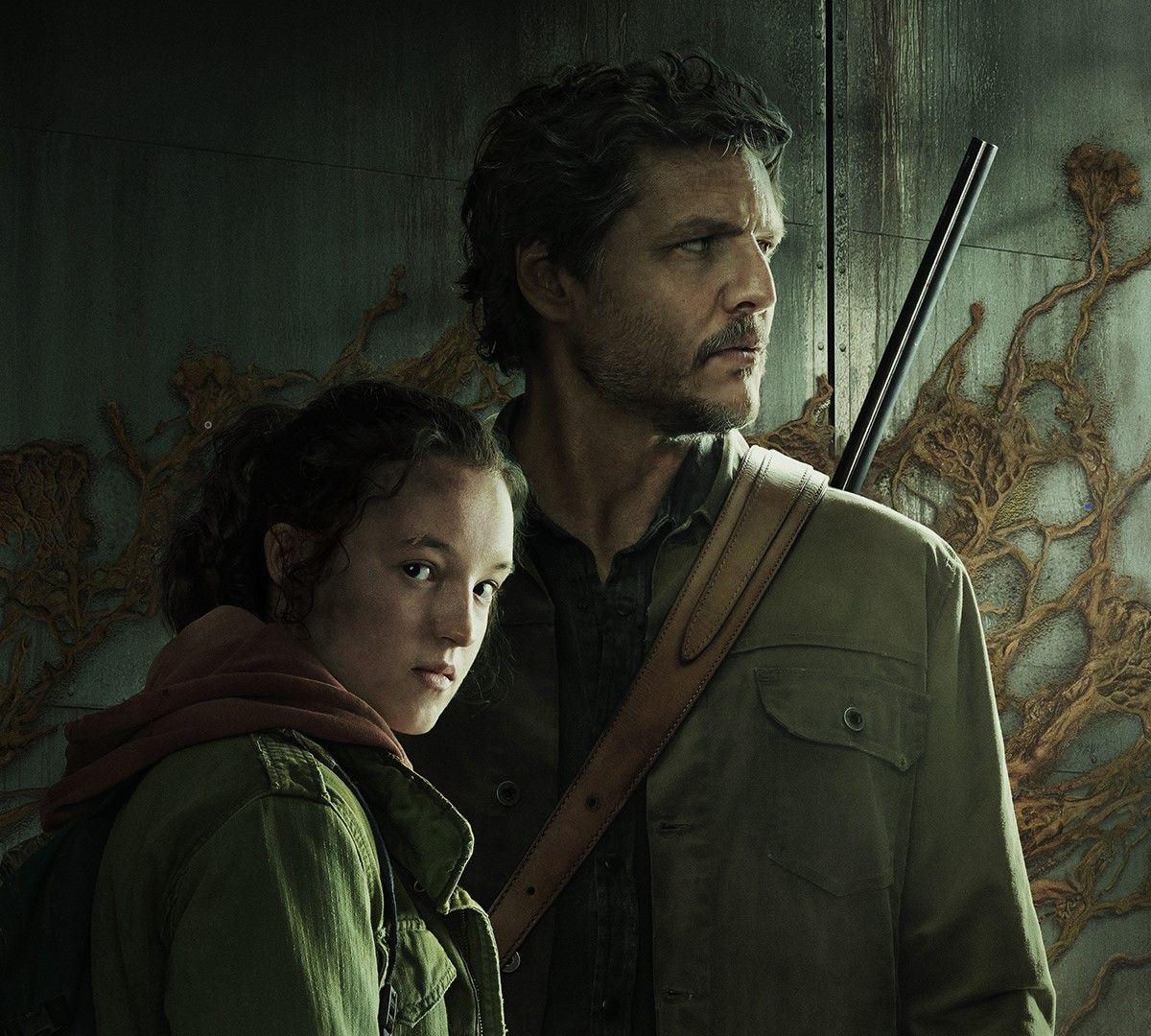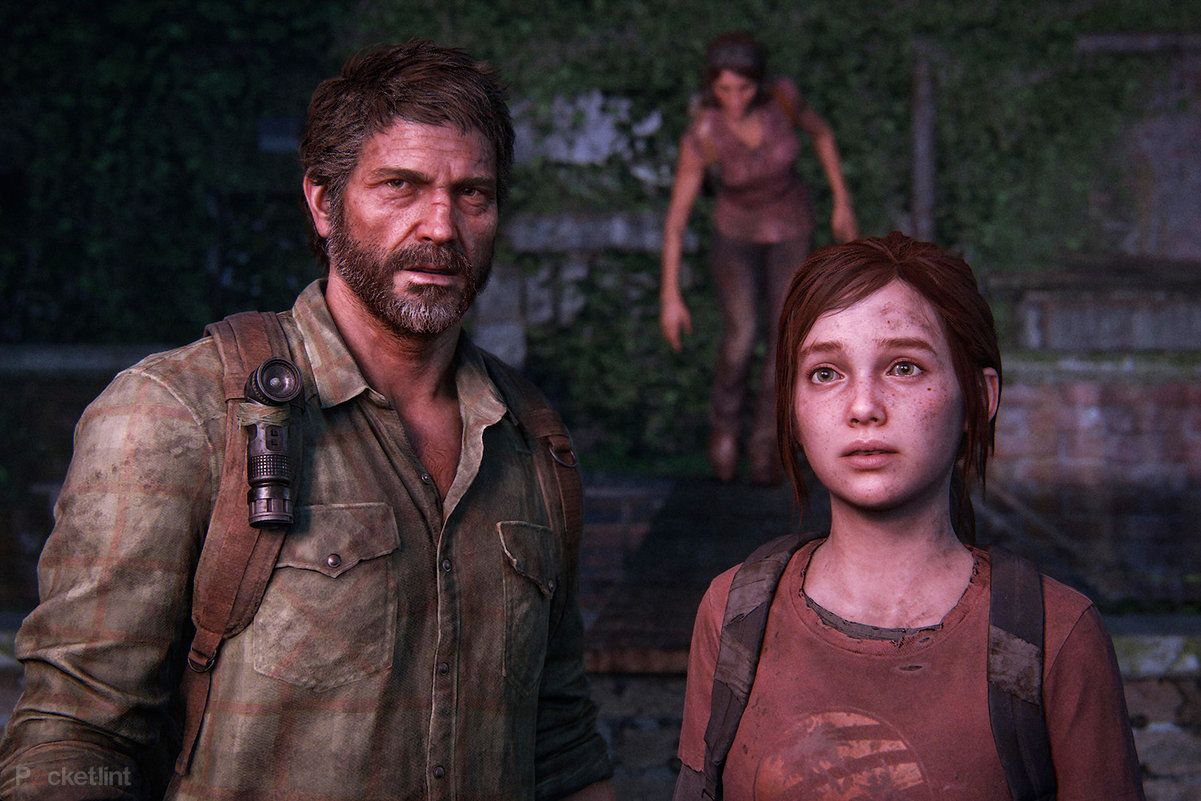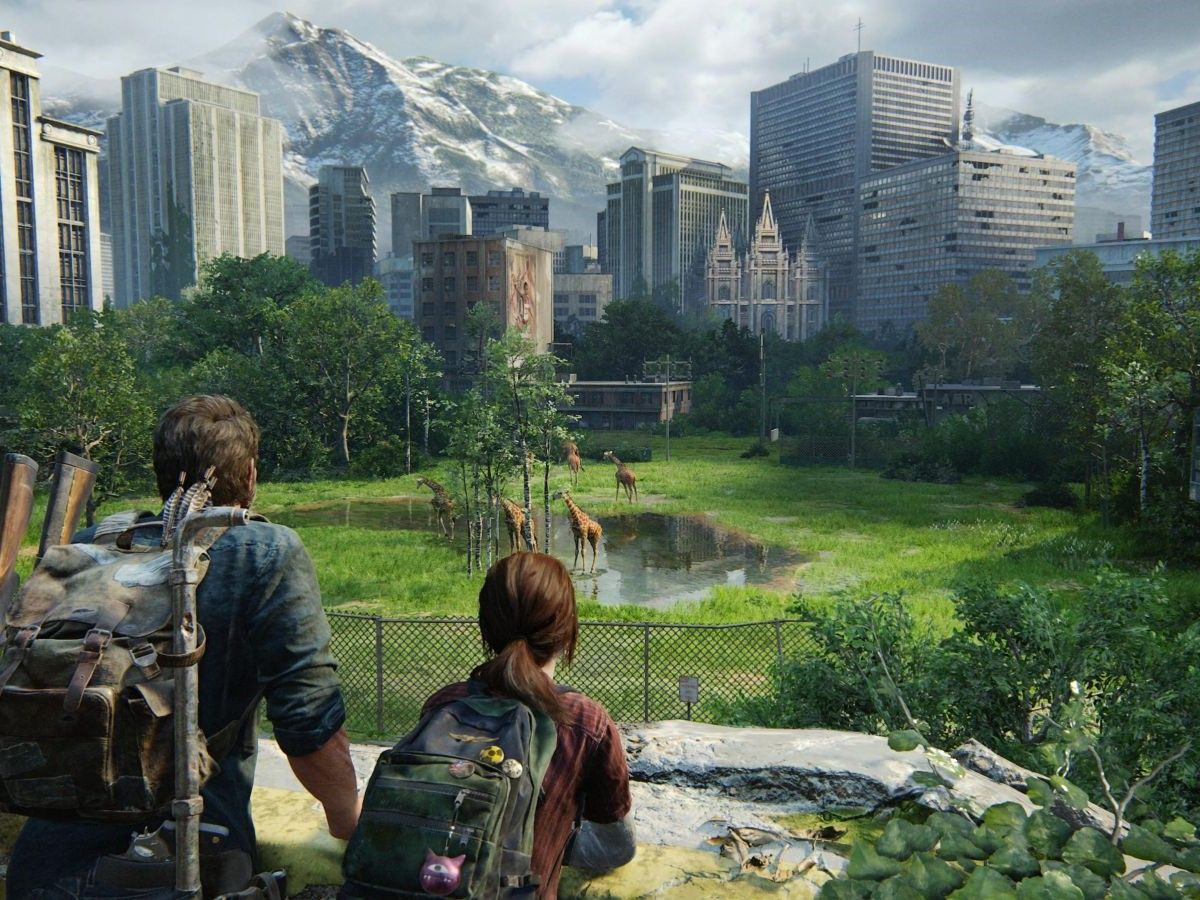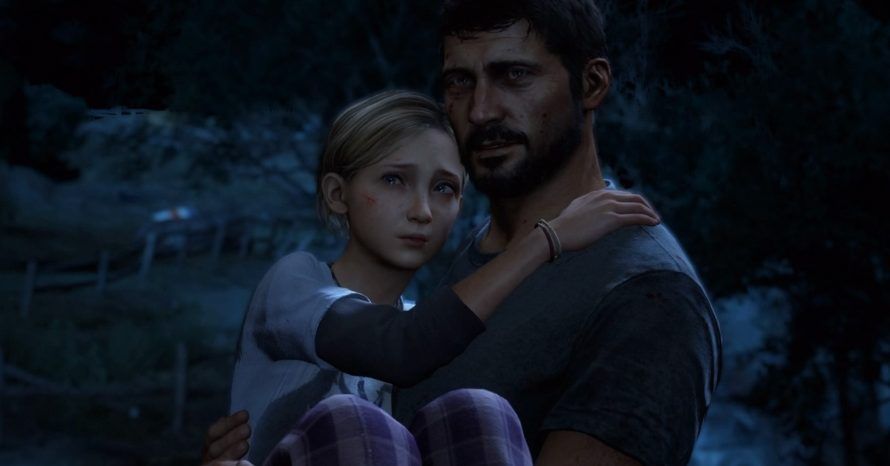Countdown to TLOU #1 (Grief)
Neil Druckmann and the team at Naughty Dog tell a poignant, relatable, compelling story in 'The Last of Us' 1 and 2—one that allowed me to, without even realizing it, process my grief and move through it.

--Beware SPOILERS for The Last of Us--
I fell in love with Naughty Dog’s The Last of Us in 2014, a year after it came out and the first year it was available on the PS4.
I’ve always been a sucker for dystopian fiction: my favorite books to this day are George Orwell’s 1984 and Margaret Atwood’s The Handmaid’s Tale, both of which I read as a teenager and both of which awoke in me a new purpose with my own writing. When I was a child, I wrote “for fun”—it was fun for me, and I wanted others to have fun reading what I wrote. I wanted to grow up and write books that were entertaining.
But Orwell and Atwood taught me that writing was also about communication. Illumination. Having something to say. Yes, you can be extremely entertaining, but writing can be much more powerful if you use your compelling story to reveal something about the world.
While I’d always been an avid reader and writer, I didn’t really play video games growing up. Sure, I played them at friends’ houses, or random arcades, but I never owned a console or hand-held device. Though we had a TV, my dad always referred to it as “the idiot box” (and now I’m working toward a career writing for it. HOW YOU LIKE ME NOW, DAD?), so video games were certainly not a thing my parents wanted to have in the house. Not that we had the money to invest in a console even if they did, but we could’ve been millionaires, and I would’ve been discouraged from owning such a thing.
I was an honor student, you see. I was also a girl. Smart girls don’t play video games. Smart women definitely don’t.
So, I didn’t live in a home with video game consoles (yes, plural) until I moved in with my then-girlfriend, now-wife, Ada. She owned: PlayStations 1-3, an Xbox 360, a Nintendo Wii, and a Super Nintendo NES (the only console not hooked up but sitting in the closet just in case). In the time we’ve been together (we started dating in 2012 and I moved in with her in 2013), we’ve acquired a PlayStation 4, a Nintendo Switch, and a Raspberry Pi programmed as an emulator for the games of our childhoods.
Suddenly, I had so many games at my disposal! At first, I relied on Ada’s recommendations for what to play. Started runs on games like Bioshock 2 and L.A. Noire, but never finished them. I was poking around looking for games that would absorb me enough to play through to the end. The first game to do this?
Katamari Damacy. What can I say? I got really addicted to rolling things up into a big ball. It was also funny and weird in the best way—the way of many Japanese things. Japan does weird really well.
The second game I completed was Journey—a beautiful game that surprised me with how much emotion it evoked with zero dialogue, and a player character that was basically just a little, black, Jawa-like creature in desert robes.

The Last of Us was the third game I ever played through to the end and the first game I played to the end that was an action-adventure game involving shooting, stealth, tracking weapons, etc. Stuff I’d historically been bad at, which is why I never finished Bioshock 2 or L.A. Noire.
I’m generally terrible at game shooting, which is why I barreled through Bioshock 2 using my Big Daddy’s drill to punch people in the face and didn’t get too far. I’m also terrible at game driving, which is why L.A. Noire sits unfinished under my PlayStation profile.
The Last of Us was different. Right from the beginning, it had a hold on my emotions. I was introduced to relatable people in a situation that seemed familiar even six years before the actual global pandemic that we’re still experiencing now. I watched Joel’s interaction with his daughter, Sarah, and was heartbroken and infuriated by her fate. I watched as Ellie and Joel were introduced to each other and immediately thought her an intriguing, nuanced, hilarious, and admirable character. As they traveled together, and as I played them both, it was the first time I was completely emotionally invested in a video game’s story.
The cut scenes were a huge part of that—they were well-acted and well-written—but the gameplay had a lot to do with it, too. The way the controller vibrated and rumbled in my hands during key moments, making what I was having the player character do feel visceral. The way certain situations forced you into doing something you wouldn’t want to do as a real person and you suspect your player character wouldn’t wanna do either—but the game is in large part about making difficult decisions to survive.
I mentioned earlier that my shooting and driving in games hasn’t been great. My handling of a controller wasn’t great in general, having not had much experience playing newer games. Something else I never got any practice at was moving stealthily. In the TLOU chapter “Cabin Resort,” there’s a section where you’re playing as Ellie and you’re running from a guy who’s trying to both recruit you and/or eat you for dinner. Yeesh.
This section requires extreme stealth, especially if Ellie’s weapons have run out and she only has her knife and her wits, which was the case when I first played. Since I wasn’t great at moving stealthily, I died. A lot. And just as the longer cutscenes are well-acted, so are the ones that pop up when your character dies. I watched Ellie die grunting and screaming over and over. And over.
Each time, watching as a man ran a small 14-year-old girl through with a machete or overpowered and killed her in some other grotesque way as the controller rumbled in my hand, making me feel the death in my body, the music sweeping up into a sharp, piercing, discordant note signaling the end of her life. My life. After a couple of days of dying like this, I had to stop playing.

I couldn’t bring myself to come back to the game for 3-4 months.
That’s how much it affected me emotionally. By the time Ellie is scavenging to save Joel and gets into her own trouble, I cared so much about both that watching her die in the game—feeling her die—was too painful for a bit.
I also cared about them so much that I couldn’t just leave the game unplayed. I had to know how things turned out and what happened to them. I had to know that they turned out okay. I don’t know if I’d describe how they turned out as “okay,” but they both survived to fight the “infected” another day. I eventually returned to the game—to more difficult choices and visceral gameplay—and by the time the closing credits rolled a couple of days later, I was emotionally drained, and I couldn’t quite believe that this was the note the game ended on.
While I’ve become more of a gamer, I’ve never been someone who follows gaming industry news. I didn’t know at the time that there would be a sequel. But you’d better believe that when I did hear about TLOU 2, I couldn’t wait to play it. My wonderful wife got it for me for my Pandemic Birthday—July 2020. How appropriate. A game about a pandemic during the pandemic.
I won’t get into TLOU 2 since the HBO show’s first season is only dealing with the first game as far as I know, but as we get closer to the show’s premiere, I’ve been thinking a lot about why this game has had such an emotional impact on me.
Here’s the funny thing: this wasn’t the essay I was sitting down to write at first. I had another topic in mind—one that I’ll write about another day—but as I sat down to write this, a thought occurred to me that had weirdly never occurred to me before. I say weirdly, because I’m a writer with a tendency to overanalyze the impact of major events on my life to weave them into a narrative I have control over.

My father died in April 2014. I started playing The Last of Us that summer.
The Last of Us is a story about fathers and daughters. About father figures and daughter stand-ins. It’s about Joel losing his only daughter and dealing with 20 years of pain over it only to meet a 14-year-old girl who needs his care and protection and grow to love her. It’s about Ellie having lost everyone who was important to her finally having a father-figure in her life and growing to love him, only to fight like hell to keep him alive when he’s in danger.
My mother died in 2006. Ellie’s mother, Anna, dies in the backstory of the game, and when we meet Ellie, people have compared her to her mother, or talked about promises they made to her mother. We never see Ellie interact with Anna, but Anna’s presence hovers over the whole game. In many ways, Ellie’s story is about figuring out who she is without her mother; defining herself rather than being defined by a parent while also building relationships with surrogate mothers like Marlene. Tess. Maria.
I haven’t thought about my response to The Last of Us in these terms before sitting down to write this, but it seems so clear to me now that a big part of why it was so emotionally resonant for me was that it so beautifully and accurately portrayed a type of grief and exploration that I’d been going through. It wasn’t because I had an affinity for dystopian settings, or that the cordyceps pandemic felt familiar, it’s that the parental loss and the deep need for a parental relationship felt familiar.
What bowled me over was that it was a video game making me feel these things. I’d been emotionally impacted in this way by films and TV shows before. There are books I’ve read that cut deep into me because they were so relatable. I never expected a video game to burrow inside me like this. I never thought that was possible in this medium.
In the same way that reading The Sandman for the first time in 2004 taught me what was possible in comics, The Last of Us taught me what was possible in video games. They are both mediums that are easily dismissed by people who see enjoying either as frivolous/escapist rather than as what they are—art forms. Sure, there are frivolous and escapist games and comics, but there are also frivolous and escapist books, films, TV shows, plays. There’s nothing wrong with that. We need escapism in our lives.
But great artists understand the power of a well-told narrative, and they understand that a well-told narrative can be told in any medium. Mediums in and of themselves aren’t “frivolous” or “highbrow,” individual works are, and what they turn out to be depends on those creating them.
Neil Druckmann and the team at Naughty Dog tell a poignant, relatable, compelling story in The Last of Us 1 and 2—one that allowed me to, without even realizing it, process my grief and move through it. Having realized that now, I love the games even more than I already did…
…and I’m even more sure that the HBO adaptation is going to wreck me.

